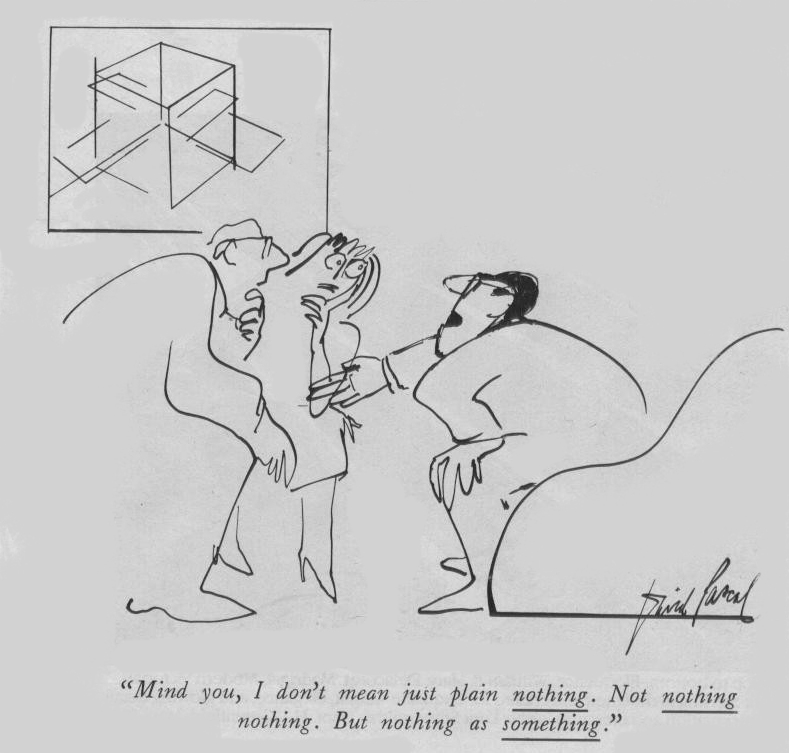A Reluctant Defense of Quine
There are a few ideas in Quine's "On What There Is" that, if taken seriously enough to support better, might warrant a closer look than Priest gave. Quine "gives up" the word exists, but makes the fatal mistake of letting Russel keep it, and that's where Priest jumps on him:
"
2. Meinong believed that there exists a unique being who is chief god living on Olympus, and he lives on Olympus...
Meinong did not believe the Greek gods to exist any more than you or I do: he knew they were mythological." page 110
The criticism is that under Quine's strategy 2 comes out true. Priest, on the same page states the very thesis that undermines this objection:
"To be assumed as an entity is, purely and simply, to be reckoned as the value of a variable" Priest quoting quine page 110
While one is under no obligation to accept Quine's thesis, it is still true that if his thesis is true, than sentence 2 is true. Meinong DID believe a unique being who is chief god living on Olympus exists(by quine's definition of 'exists').
Now the issue comes down to simply what it means to exist. In essence, it's just the debate about seriousness. If one is "serious" than Quine's thesis isn't far-fetched at all. Just like Priest can demmand some sort of support for Quine's thesis, Quine make a counter demand for some justification on why he can have non-existent objects being quantified over. Priest would then call Quine prejudiced against non-existent objects, and Quine would find something to say back; then maybe give Priest a different name and start attributing to him theories he doesn't accept at all.
Priest has another issue with Quine that is perhaps a stronger one. That is, Quine's strategy for deriving meanings of empty names rests on replacing the name with a definite description. This makes him a targed of the modal&epistemic objections, as Priest points out. And as proff Tillman pointed out to me, it also makes him target of most, if not all, objections raised against Frege. Still, consider the two ways of referent fixing: 1) baptism by perceptual contact 2) reference fixing by description. Note that in the case of empty names, (1) is impossible. In the case of 2, the name is originally dependant on a definite description. It would take more research and space to flesh this out than a mere comment paper; but perhaps this can be exploited to get a plausible theory of descriptivism that applies to empty names only. If this can be done, Quine's method would be sort of plausible. And if this were so, it could solve the paradoxes of non-existence, while still allowing seriousness and a relatively small ontology (it would require at least past&presentism). Contingent on this massive project of empty-name descriptivism, Quine's may be the best theory on balance.
"
2. Meinong believed that there exists a unique being who is chief god living on Olympus, and he lives on Olympus...
Meinong did not believe the Greek gods to exist any more than you or I do: he knew they were mythological." page 110
The criticism is that under Quine's strategy 2 comes out true. Priest, on the same page states the very thesis that undermines this objection:
"To be assumed as an entity is, purely and simply, to be reckoned as the value of a variable" Priest quoting quine page 110
While one is under no obligation to accept Quine's thesis, it is still true that if his thesis is true, than sentence 2 is true. Meinong DID believe a unique being who is chief god living on Olympus exists(by quine's definition of 'exists').
Now the issue comes down to simply what it means to exist. In essence, it's just the debate about seriousness. If one is "serious" than Quine's thesis isn't far-fetched at all. Just like Priest can demmand some sort of support for Quine's thesis, Quine make a counter demand for some justification on why he can have non-existent objects being quantified over. Priest would then call Quine prejudiced against non-existent objects, and Quine would find something to say back; then maybe give Priest a different name and start attributing to him theories he doesn't accept at all.
Priest has another issue with Quine that is perhaps a stronger one. That is, Quine's strategy for deriving meanings of empty names rests on replacing the name with a definite description. This makes him a targed of the modal&epistemic objections, as Priest points out. And as proff Tillman pointed out to me, it also makes him target of most, if not all, objections raised against Frege. Still, consider the two ways of referent fixing: 1) baptism by perceptual contact 2) reference fixing by description. Note that in the case of empty names, (1) is impossible. In the case of 2, the name is originally dependant on a definite description. It would take more research and space to flesh this out than a mere comment paper; but perhaps this can be exploited to get a plausible theory of descriptivism that applies to empty names only. If this can be done, Quine's method would be sort of plausible. And if this were so, it could solve the paradoxes of non-existence, while still allowing seriousness and a relatively small ontology (it would require at least past&presentism). Contingent on this massive project of empty-name descriptivism, Quine's may be the best theory on balance.


0 Comments:
Post a Comment
<< Home